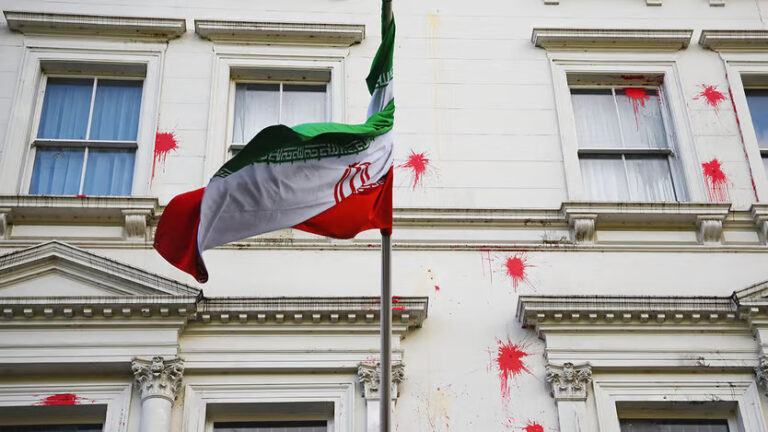
BY MICHAEL KNIGHTS
May 6, 2010
Although largely peaceful and free of fraud, the recent election is in danger of becoming the first widely discredited national balloting of the post-Saddam period. The groundwork was laid for this perverse state of affairs during the pre-election period when the Accountability and Justice Commission (AJC) sought to ban 511 candidates using de-Baathification statutes, and by the claims of fraud leveled by both Prime Minister Nouri al-Maliki’s State of Law Alliance (SLA) and Ayad Allawi’s Iraqi National Movement (INM) before the first votes were even counted. On April 19, the Iraqi Judicial Commission acceded to calls for a manual recount of more than 2.4 million votes in Baghdad, a process that began on May 2 and will continue for at least two weeks. Under the influence of the Iraqi National Alliance (INA), the largest Shiite Islamist bloc in late April, the AJC reopened a raft of de-Baathification cases involving electoral candidates.
Although only two to four seats may change hands in the 325-seat parliament, these cases significantly affect the dynamics of government formation. The first important consequence is delay; even under optimal conditions, electoral results will not be certified until at earliest the last week of May, making it possible that parliament will not elect a president before mid-July. This would leave precious little time for a prime minister-elect to ratify a government before the onset of Ramadan on Aug. 11. Even with plain sailing, it could be mid-September before a government sits — or, put another way, after the scheduled withdrawal of all U.S. combat forces from Iraq. More severe delays are possible, as the parties could press for further recounts, appeals, and investigations.
Iraq’s political geometry has also been affected by the acrimonious political wrangling that has taken place since the elections. The most striking result has been the obstruction of an alliance between the two front-running nationalist coalitions, led by Maliki and Allawi. Although such an alliance would always have been difficult, due to the two leaders’ personalities, it had the potential to reshape Iraqi politics. Such a nationalist super-coalition would support a strong federal state, foreign investment, independence from Iran, and re-engagement with the Arab world. Instead, Maliki and Allawi have become locked in an increasingly bitter and mutually destructive struggle to leapfrog the other as the coalition with the greatest number of seats in parliament. This dubious distinction may not ultimately increase either man’s prospects of becoming prime minister.
Following this week’s negotiations, the core of the next government is almost certain to be Maliki’s predominately Shiite Arab SLA (89 seats) and the Shiite Islamist INA (68 seats), the latter including 39 Sadrist legislators and 17 parliamentarians associated with the Iranian-backed Islamic Supreme Council of Iraq (ISCI). As these two blocs almost have the 163 votes needed to ratify a government, the leverage of other blocs is now reduced and the Kurds and other parties will jump on the bandwagon without extensive preconditions.
The election of Iraq’s next president requires a two-thirds majority, or 216 votes, in parliament. The early formation of this supermajority will likely provide the outlines of the coming “national unity government,” which may have no cohesive objective except to vouchsafe ministerial portfolios for the component political parties. All legislation will require months of painstaking vote-trading, as the six largest parties in Iraq hold a total of just 136 of the 325 seats in parliament. The participation of Sunni Arabs, largely clustered in Allawi’s bloc, would be marginal in the new government.
The elephant in the room is Prime Minister Maliki, who may still need to be shunted aside to make way for a weak place-holder that all the Shiite parties (and particularly the Sadrists) can agree upon. Indeed, Maliki’s own alliance has laid the groundwork to remove him, should he become an obstacle to the State of Law’s inclusion in a future government. Four likely alternatives to Maliki stand out from the raft of mid-ranking Shiite Arab politicians: former Prime Minister Ibrahim al-Jaafari, who has an outside chance; Vice President Adel Abdul-Mahdi, an ISCI politician; Ali al-Adeeb, a senior State of Law official; and Jaafar Mohamed Baqir al-Sadr, a State of Law politician related to martyred Shiite cleric Mohammed Baqir al-Sadr and brother-in-law of the Islamist firebrand Moqtada al-Sadr. These individuals share a number of key attributes, including limited personal support bases and an ability to work with most parties.
Hand in hand with its proxies in the INA, Iran has successfully stymied the development of a strong nationalist government in Baghdad for at least another four years — the ultimate payoff for its virtuoso performance in manipulating Iraqi politics. With the U.S. government’s horizon limited to its military withdrawal, an exhausted Washington does not appear capable of making such fine distinctions and will likely greet the formation of a new Iraqi government, any government, with relief.
Source: Foreign Policy







+ There are no comments
Add yours